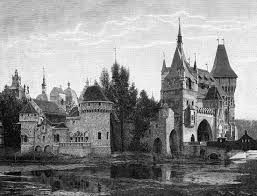1. Celts: Earliest inhabitants and Ancient Britain.
2. Jutes, Angles, Saxons: conquered celts around 5th century.
5. Alfred the Great: first great king of England.
8. Harold Godwin: English nobles made him very powerful.
9. Wiliam the Conqueror: got his name after the Battle of Hastings.
19. Joan of Arc: peasant girl who claimed she heard from God.
25. Hugh Capet: his corination began the Capetian line of French kings and of french nation.
26. Louis VI: strenghtened kings power in the ile-de-france.
28. Louis IX: one of frances most memorable kings.
30. Boniface VIII: the pope.
33. Ferdinand and Isabella: prince who married the princess and then united the two kingdoms.
39. Marco Polo: son of Italian Merchant.
42. Christopher Columbus: italian born adventurer who planned a voyage to the west indies.
Who were the earliest known inhabitants of the British Isles? celts
What were the dates of the Hundred Years’ War? 1337-1453
Which Germanic tribe conquered Spain in the 5th century? Anglo-saxons
Which name did the Romans give to Spain? hispana
These were Muslims from North Africa who invaded Spain: Moor
What does “reconquista” mean? spanish waged a crusade, to take spain back from the moor
Name 4 nations that developed in Europe during the Middle Ages. england,france,spain, and
Portugal
What is the name of the monument in Southern England that may have been an ancient Celtic
worship site? stonehenge
Which Germanic tribe named England? anglo-saxon
Which Anglo-Saxon poet lived in the 7th century? (Hint: There’s a Christian band named after him) caedmon
Who was crowned king of France in 987 AD? hugh capet
Which French king was St. Louis, MO named after? louis 6
What was the French Estates-General composed of? (List them out) 1st-clergy 2nd-nobles 3rd
commoner
Which peninsula is Spain located on? iberian peninsula
Name 3 Germanic tribes. angles,saxons,and jutes
Which countries fought during the Hundred Years’ War? Who won? england and france, france
won
ooooh BLAH!!!
Section Review 26 review 2. pg 515
15 years ago










